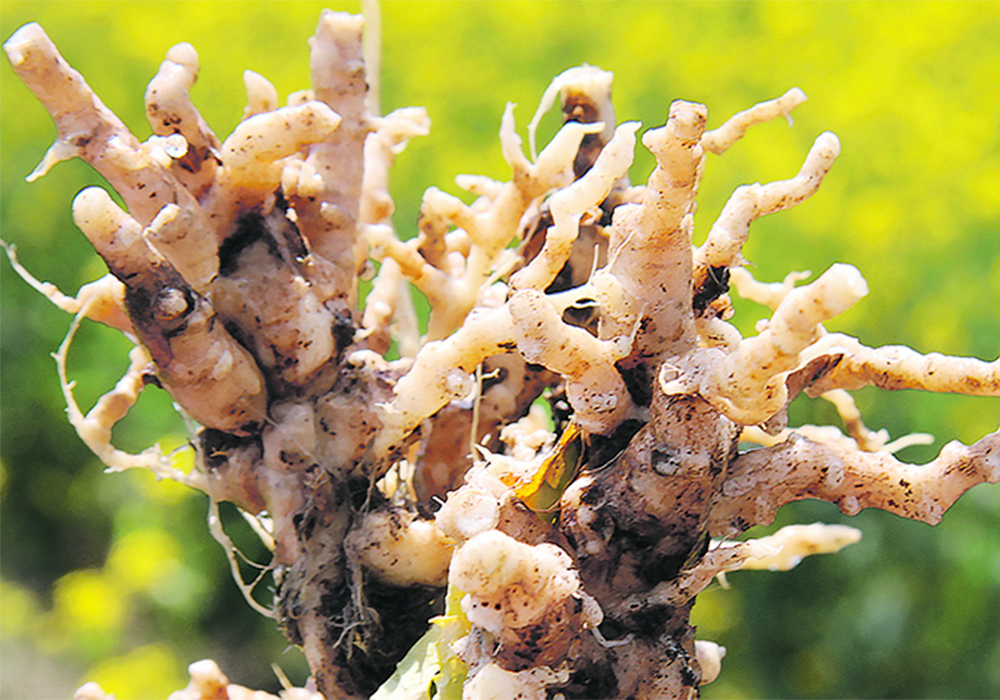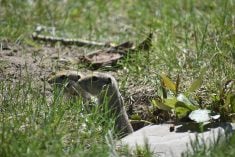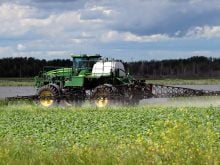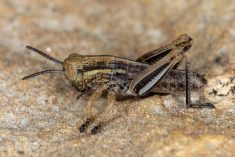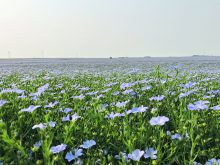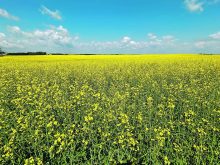Richardson’s ground squirrel, grasshoppers and the warble fly are also no longer on the province’s list of declared pests
REGINA — Clubroot is among several pests the Saskatchewan government has now deregulated.
The government in June repealed the Pest Control Act and replaced it with the Plant Health Act and its accompanying regulations.
As a result, clubroot, Richardson’s ground squirrel, grasshoppers and the warble fly are no longer on the list of declared pests. All are considered endemic, with the exception of clubroot.
Read Also

Short rapeseed crop may put China in a bind
Industry thinks China’s rapeseed crop is way smaller than the official government estimate. The country’s canola imports will also be down, so there will be a lot of unmet demand.
Potato wart was newly declared.
Provincial pest regulatory specialist Raul Avila said three sets of regulations have been rolled into one under the new act.
“And, we established standardized measures to control all the declared pests in the province,” he said.
“This is going to reduce complexity and streamline the regulatory framework. Also, this is going to facilitate the work for producers, rural municipalities and also pest control officers because everything is going to be in one big regulation.”
The government had consulted on the changes, saying last winter they could be in place by spring.
SaskCanola requested the change for clubroot, saying there was stigma around having the disease in producers’ canola fields. Chair Keith Fournier said in December more is now known about clubroot and how to deal with it.
“We will never eradicate it,” he said at the time. “We have to learn to farm with it.”
Other industries were less sure. The province’s vegetable growers were worried about growing brassicas, for example.
Avila said bacterial ring rot and late blight, which are both potato diseases, brown or Norway rats, and feral pigs remain on the declared pests list.
He said there would be templates for rural municipal pest officers to follow to enforce the regulations.
The Pest Declaration, Bacterial Ring Rot Control and Late Blight Control regulations have all been consolidated in the new regulations.
“Through these changes we have modernized legislation and established standardized measures to control declared pests and given more autonomy back to producers on reporting and control methods,” said agriculture minister David Marit in a news release.
“This update not only promotes the growth of the agriculture sector but also aims to minimize crop losses due to pests, thus safeguarding the integrity of the industry.”
The ministry said it remains fully committed to surveillance, research and extension to mitigate the impact from pests, whether declared or not.
The new declared pest, potato wart, has not been found in Saskatchewan but has caused considerable trouble in Prince Edward Island. Avila said adding it to the list is to help prevent its introduction.
He said the last outbreak of bacterial root rot was in 2012 and the last outbreak of ring rot was in 2013.
“I think producers should always be out there scouting their fields and seeing if there’s something new,” he said.
The ministry already conducts more than 20 pest surveys each year. It also has a committee to help in that regard.
Avila said extensive analysis of the effects of clubroot indicated those who had found it in their fields were following proper rotations and biosecurity protocols and growing clubroot resistant varieties.
“The producers have a good understanding of the disease management and they have been taking steps to effectively manage the disease,” he said.
Integrated pest management strategies are still important for any pests, he said.
The province is maintaining its free soil testing program for clubroot and will this year offer support to individual farmers to help them develop clubroot management plans.


